Be Bear Aware!
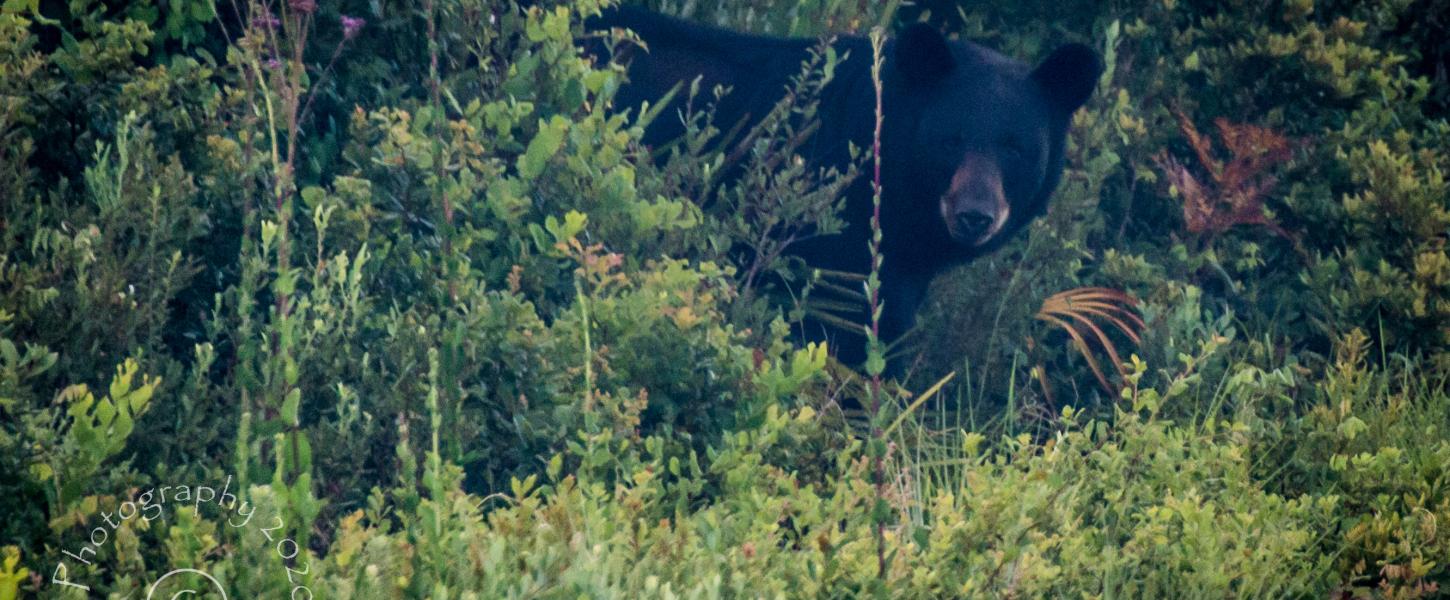
The Florida Black Bear is a native resident of Florida.
During your camping stay at a state park, you might be lucky enough to see a bear in the wild or come across evidence of their presence.
While bears in their natural habitat may appear cute, slow and cumbersome, they are actually strong, fast and agile. Bear attacks are rare but have occurred in Florida, predominantly in residential communities next to natural areas.
To ensure your safety during your stay, please review the following rules - the foremost being:
- Never feed bears or other wild animals.
- In the campground: Bears have very keen and sensitive noses. They can smell food, garbage, herbal soaps and other personal hygiene items at great distances that may draw them to your campsite.
- Do not leave food out at night on your campsite or in any item that they may get into. This includes packs, tents or coolers. Secure all coolers and food in your vehicle (preferably in the trunk), camper or motor home.
- Bears love pet food. Do not leave dog or cat food out overnight on your site. If you feed your pets outside, feed them only what they can eat at one time and clean up when they are done.
- Do not leave garbage on your site. Dispose of garbage using the bear resistant trash cans provided in the campground and at the spring.
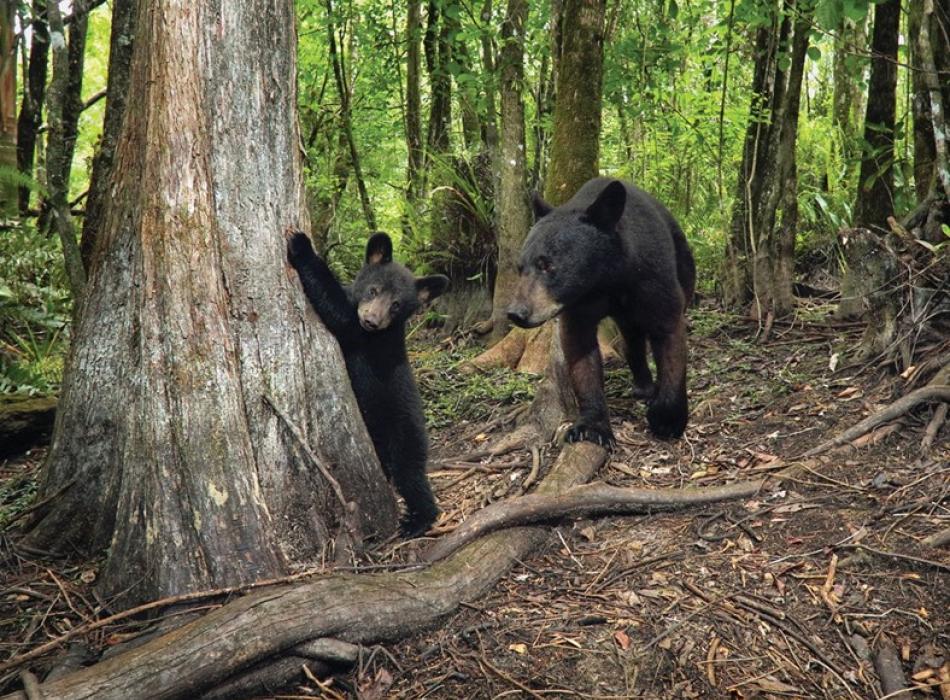
A young bear stretches against a tree while an adult bear watches at Fakahatchee Strand Preserve State Park. Photo by Jay Stanton.
- If a bear enters your campsite, make noise to drive it off. Bang pots, speak loudly or blow whistles or horns. If it does not leave, slowly move inside your vehicle or camper. Do not run.
- If a bear enters your campsite and you are in a tent, do not play dead; let the bear know you are there by speaking loudly and making noise. If you can set off your car alarm, do it.
- On the trails: Identify yourself by talking calmly so the bear knows you are a human and not a prey animal. Remain still; stand your ground but slowly wave your arms. Make yourselves look as large as possible (for example, move to higher ground).
- Never imitate bear sounds or make a high-pitched squeal.
- Pick up small children immediately.
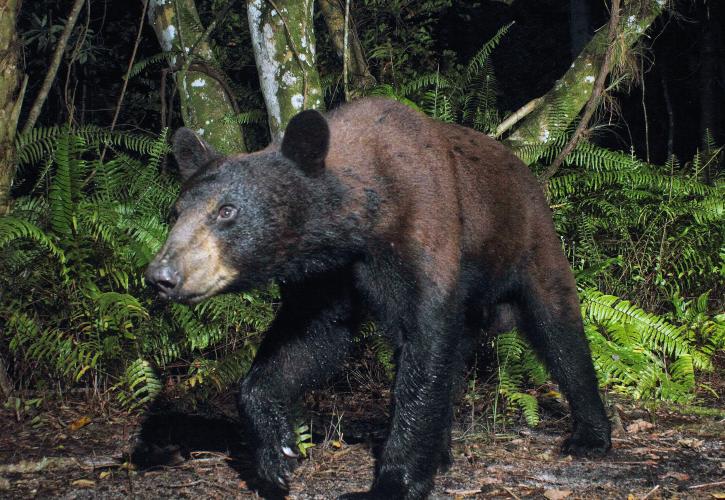
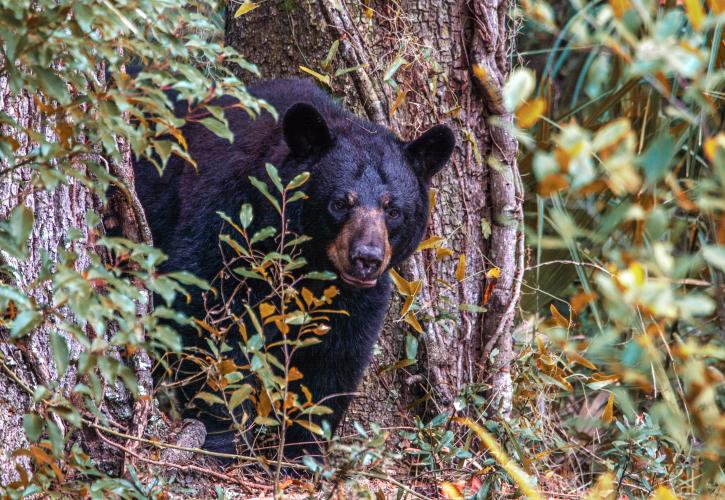
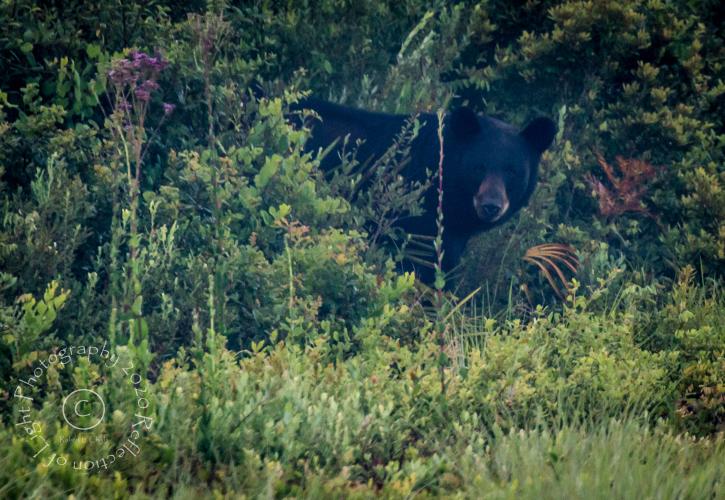
Black Bear on the Pine Island Trail
Close
Information
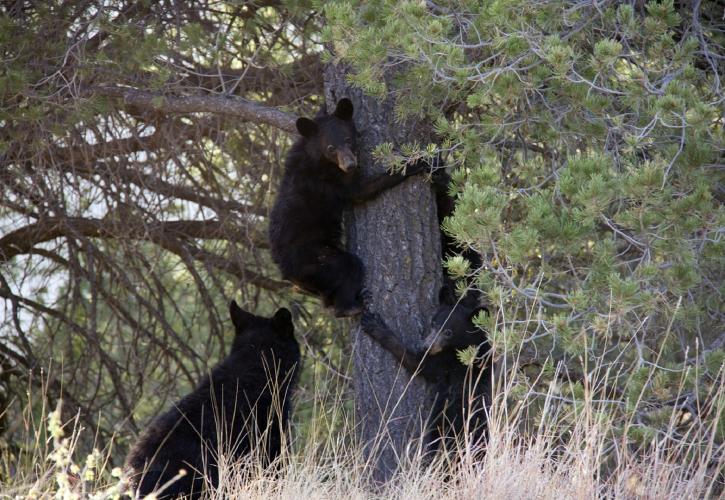
- Do not allow the bear access to your food. When bears succeed in getting your food, it encourages them to try again and makes the problem worse for others.
- Do not drop your pack as it can provide protection for your back and prevent a bear from accessing your food.
- If the bear is stationary, move away slowly and sideways; this allows you to keep an eye on the bear and avoid tripping. Moving sideways is also non-threatening to bears. Do not run, but if the bear follows, stop and hold your ground. Do not climb a tree; black bears can climb trees.
- Leave the area or take a detour. If this is impossible, wait until the bear moves away. Always leave the bear an escape route.
- Be especially cautious if you see a bear with cubs; never place yourself between a mother and her cub, and never attempt to approach them. The chances of an attack escalate greatly if she perceives you as a danger to her cubs.